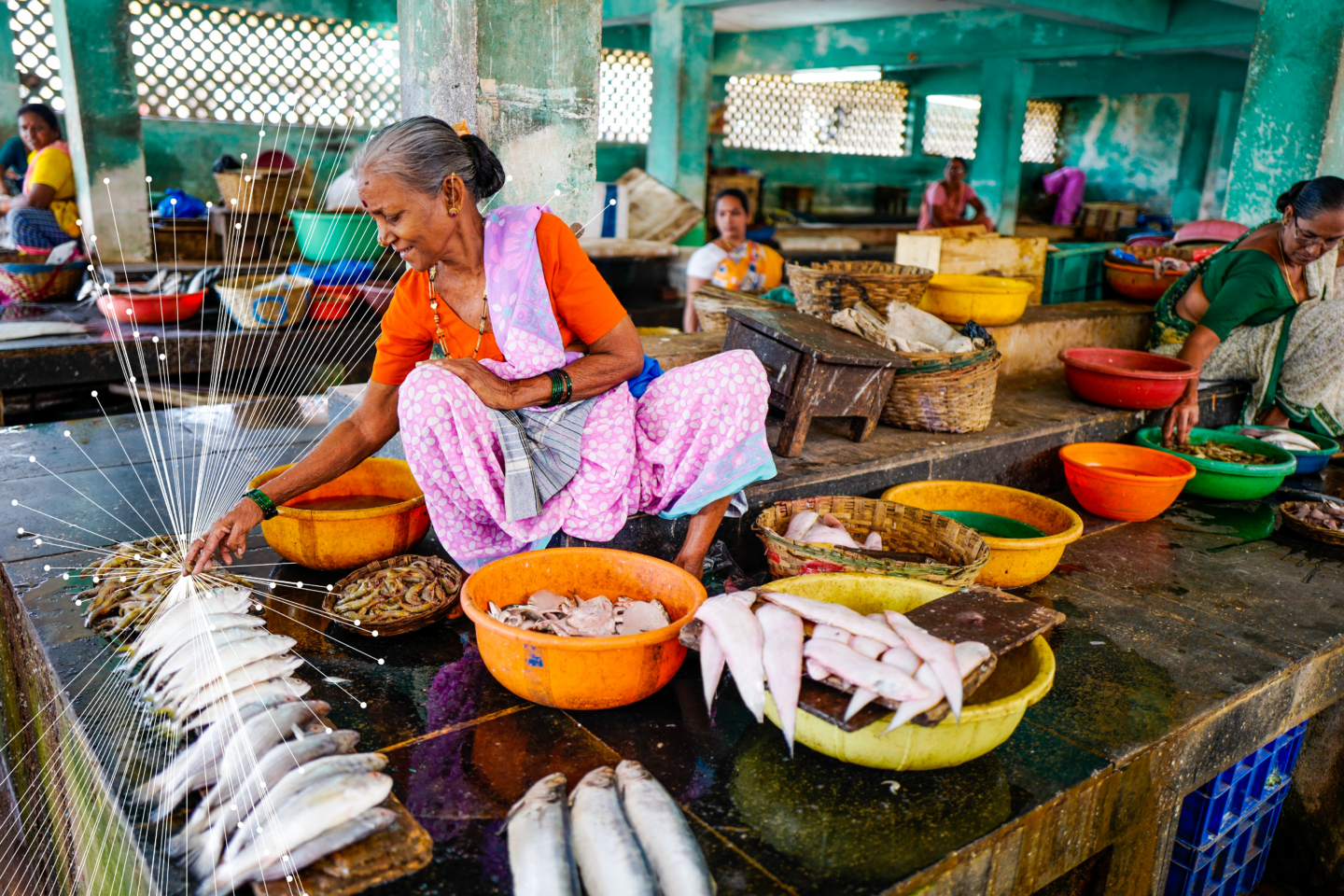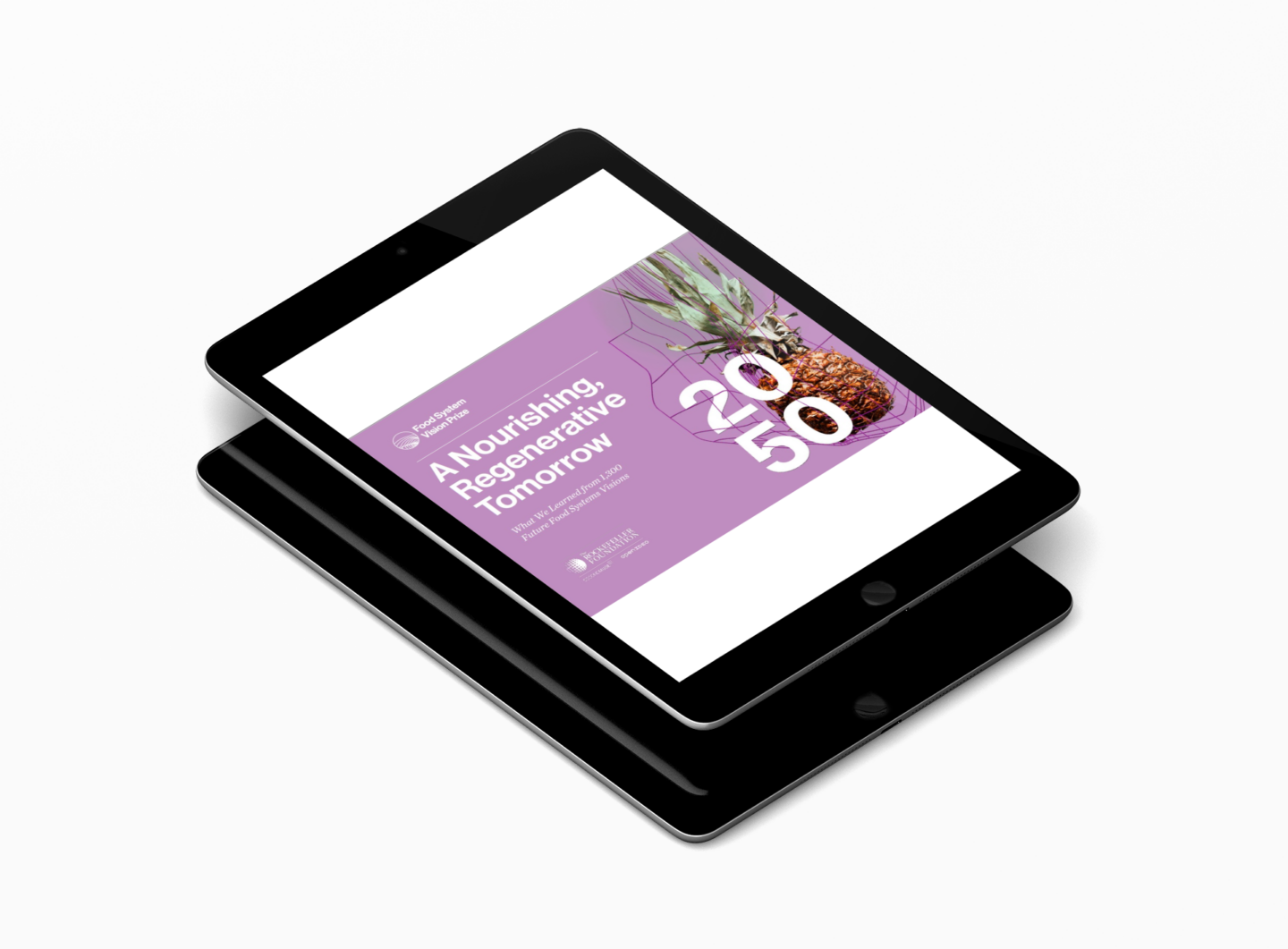Advancing Good Food Solutions
Our food systems are failing to protect and promote our health and the health of our planet. We can change this by supporting food systems that create value and ensure that everyone has access to Good Food that improves their health, celebrates their cultural traditions, sustains, and replenishes the Earth’s resources, and delivers fair returns for the people who produce and provide it.
- 660million
people will be affected by hunger by 2030 if recent trends continue
- 1/5deaths
worldwide are attributed to unhealthy diets
- 1/3
of total global greenhouse gas emissions are a result of the food system
Spurring research, generating data, and organizing coalitions to increase consumption of healthy foods and build food systems that are nutritious, regenerative, and equitable.
Periodic Table of Food
Our understanding of how food nourishes us is still surprisingly limited. At most, about 150 of our food’s biochemical components are measured and tracked in conventional databases, which represents only a tiny fraction of the more than 20,000 biochemicals in food. The Periodic Table of Food Initiative is a global effort to create a public database containing the comprehensive biochemical composition and function of the most important foods from around the globe. Understanding the interactions between food, health, nutrition, and environment will help us better support both human and planetary health.


Regenerative Landscapes and Agroecology
Early data suggest regenerative agriculture / agroecological practices offer a way to rebuild soil health, sequester carbon, and replenish biodiversity while increasing cultural identity, territorial rootedness and living wages for producers. Yet a lack of standardized definitions, shared principles and clear outcomes hinders full scale adoption of this approach to landscape management and production. A need for better data on regenerative outcomes from a range of practices across foodscapes is warranted as is a connective tissue between regenerative initiatives to help advance best practice. The Rockefeller Foundation supports the facilitation of a shared global vision, outcomes, and metrics on regenerative / agroecological practices rooted in the value of inclusion. Indigenous communities and farmers are central to this work as are partnerships with groups like the Global Alliance for the Future of Food working on the linking different types of evidence and ways of knowing together for a regenerative future.
Diet Quality Measurement

Historically, ideas about healthy diets were a response to deprivation, whether due to poverty or the demands of wartime economies. Healthy and high-quality diets were defined as those that were sufficient: first in calories and protein, and later in vitamins and minerals. However, given diet is today the number one cause of preventable death, global concerns include sufficiency/adequacy, non-communicable disease risk reduction, food safety, and sustainability, and these concerns are relevant in all countries. The measurement of “diet quality” that acknowledges all of these facets is a technical domain that has been neglected, which exacerbates underinvestment in good food dietary patterns. The Rockefeller Foundation works with a range of organizations such as Harvard, Tufts, the World Health Organization, Gallup World Poll, and others seeking to harmonize and elevate the measurement of diet quality.

Global Good Food Procurement
Working in Africa, the U.S. and globally, the food team is committed to shifting global procurement standards from price-first to accounting for all three dimensions of Good Food: nourishing, regenerative, equitable.
Working with anchor partners that serve public institutions with wide reach across vulnerable communities such as the UN’s World Food Program, The Rockefeller Foundation is working to co-create shared global principles of good food purchasing, building the evidence base needed to shift procurement standards, and demonstrating the benefits of good food purchasing in on-the-ground pilots.
Policy and Advocacy
The price tag of the global food system is roughly one third of the actual cost of our food system. Whereas the current price of our food includes the cost of producing, processing, retailing, and wholesaling the food we buy and eat, it does not include the cost of healthcare for the millions who fall ill with diet-related diseases.

Nor does it include the present and future costs of the food system’s contributions to water and air pollution, reduced biodiversity, or greenhouse gas emissions, which cause climate change. We are supporting metrics and data systems that better inform decision-makers on the real costs and benefits of our food. This includes expanding existing investments in True Cost Accounting, which evaluates all the costs of the food system beyond what consumers pay in stores.

Food System Vision Prize
Recognizing the need to replace dystopian narratives with positive futures that activate real change in food systems across the world, The Rockefeller Foundation launched the Food System Vision Prize 2050, an invitation for organizations, universities, institutions, companies, cooperatives, and partnerships from around the world to co-create inspiring Visions of their own local food system by 2050. The Top 10 Finalists, whose Visions focus on food systems in Canada, China, India, Kenya, the Netherlands, Nigeria, Peru, and the U.S., are developing actionable solutions for the food systems of tomorrow.
- FEATURE
The Rockefeller Foundation Recognizes Top 10 Visionaries Transforming the Future of Food Systems Across 8 Countries
New York, January 7, 2021 - Ahead of the first-ever United Nations’ Food Systems Summit, the …
SEE MORE


